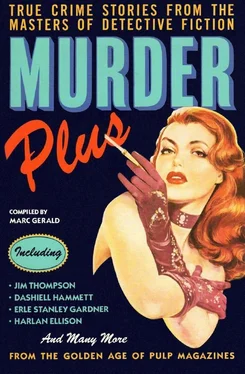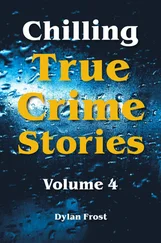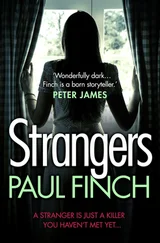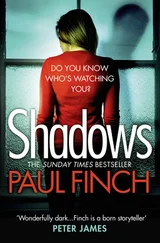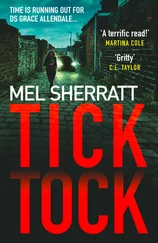Харлан Эллисон - Murder Plus - True Crime Stories From The Masters Of Detective Fiction
Здесь есть возможность читать онлайн «Харлан Эллисон - Murder Plus - True Crime Stories From The Masters Of Detective Fiction» весь текст электронной книги совершенно бесплатно (целиком полную версию без сокращений). В некоторых случаях можно слушать аудио, скачать через торрент в формате fb2 и присутствует краткое содержание. Город: New York, Год выпуска: 1992, ISBN: 1992, Издательство: Pharos Books, Жанр: Детектив, на английском языке. Описание произведения, (предисловие) а так же отзывы посетителей доступны на портале библиотеки ЛибКат.
- Название:Murder Plus: True Crime Stories From The Masters Of Detective Fiction
- Автор:
- Издательство:Pharos Books
- Жанр:
- Год:1992
- Город:New York
- ISBN:978-0-88687-662-3
- Рейтинг книги:4 / 5. Голосов: 1
-
Избранное:Добавить в избранное
- Отзывы:
-
Ваша оценка:
- 80
- 1
- 2
- 3
- 4
- 5
Murder Plus: True Crime Stories From The Masters Of Detective Fiction: краткое содержание, описание и аннотация
Предлагаем к чтению аннотацию, описание, краткое содержание или предисловие (зависит от того, что написал сам автор книги «Murder Plus: True Crime Stories From The Masters Of Detective Fiction»). Если вы не нашли необходимую информацию о книге — напишите в комментариях, мы постараемся отыскать её.
Murder Plus: True Crime Stories From The Masters Of Detective Fiction — читать онлайн бесплатно полную книгу (весь текст) целиком
Ниже представлен текст книги, разбитый по страницам. Система сохранения места последней прочитанной страницы, позволяет с удобством читать онлайн бесплатно книгу «Murder Plus: True Crime Stories From The Masters Of Detective Fiction», без необходимости каждый раз заново искать на чём Вы остановились. Поставьте закладку, и сможете в любой момент перейти на страницу, на которой закончили чтение.
Интервал:
Закладка:
“Well, all right.” She rose slowly. Herrick and Sperling followed her up the stairs.
In the bedroom, she rummaged in a closet and came out with a pair of heavy brogues. “Will these do?”
Sperling placed his box on the floor, untied the string and opened the lid. He scowled at the heavy shoes and solid leather heels and tried one for size. It seemed too wide.
He looked at Herrick and shrugged and then said to Mrs. Engleberry, “Are those the only extra shoes he has? What I need are a pair of dress oxfords with rubber heels.”
“He has only one good pair and he wears them to work. But there’s an old pair somewhere. Just a minute.” She dug into the closet again and this time came out empty-handed. “They’re not here. George may have thrown them out or perhaps they’re at the shoemaker’s.”
“When was the last time you saw them?” the Chief inquired.
Again the shadow crossed her face. She chewed on her lower lip. “Why don’t you ask George those questions? Anyway, it seems to me that all this bother about shoes is ridiculous.”
Sperling tied up his box. Herrick thanked Mrs. Engleberry for her cooperation and the two men left the house.
“Well Chief?” Sperling said when they were in the car. “He seems to wear the same size, but you can’t tell exactly from those heavy shoes. And we need more than size. We need positive identification. That wouldn’t be legal evidence even then, but it would be a lead. Should we drive over to the print shop where he works?”
The Chief closed his eyes in frustration. He had the thought that all day he had been running in circles.
“We might as well try it,” he said almost indifferently.
When they reached the Marvin Center Press on Division Street, they learned that George Engleberry had left five minutes before. Sperling said, “We must have passed him on the way. Should we go back to his house?”
“Why not?”
More lights were on in Number 37 than there had been ten minutes before. A cream-colored sedan was parked in the driveway. The door was again opened by Mrs. Engleberry. She started at the sight of the two policemen.
“Why are you back?”
Herrick said placatingly, “We still want to ask your husband those questions and we noticed his car outside.”
His manner seemed to reassure her. “He’s down in the cellar tending the furnace.” She raised her voice. “George, come up here.”
“Who is it?” a voice came hollowly.
“Please come up.”
“Just a minute.”
As Herrick waited in the hall with Sperling and Mrs. Engleberry, an urgent feeling that he should be doing something came over him. Almost without thought, he started down the hall toward the kitchen.
He was in the kitchen when Engleberry appeared through the cellar door. The man drew back as if from a blow. His deep-set eyes were wild, his cheeks pinched.
“What do you want?” he asked hoarsely.
Herrick’s gaze was drawn down to Engleberry’s feet — to the worn, split shoes. They didn’t go with the clean neatness of the rest of his clothes, and his wife said he wore good shoes to work.
“Are those the shoes you wore all day?” the Chief demanded.
“I—” Engleberry’s eyes dropped to his feet. He started to shake. “Sure, I wore those shoes to work. They’re comfortable.” His voice rose stridently. “What’s the matter — can’t I wear any shoes I want?”
Herrick snapped, “Keep your eyes on him, Ray,” and pushed past Engleberry and rushed down the cellar steps. Behind him he heard Mrs. Engleberry utter a choked cry.
When the Chief reached the cellar, he paused in indecision. Engleberry’s manner had been that of a man very badly frightened, but how much did that mean? And if it did mean anything, how sure could he be that there was anything to be found here in the cellar?
His eyes fell on the coal furnace. He was hardly breathing as he pulled the door open. A little sigh escaped him at what he saw on the glowing coals. Quickly he snatched up a shovel and a poker.
The smell of burning leather and rubber was acrid in his nostrils as he carried the smoldering shoes upstairs on a shovel. The three others were still in the kitchen.
Engleberry had dropped down on a chair beside the porcelain-topped kitchen table, and his face was in his hands. Dully he looked up when Herrick entered with what was left of the shoes.
“I didn’t want to hurt her!” Engleberry moaned. “I didn’t know what I was doing. I didn’t mean it!”
Later that night, he made a complete confession to Herrick and District Attorney Simms.
He said that all along it had been Vivian Lahey whom he had loved. Years ago he had asked her to marry him, and when she would not have him, he had married her sister Rose. But through the five years of his married life Vivian lived in the same house, and her constant presence kept his passion for her alive. He insisted that he had never made an indecent proposal to her or approached her in any way, but he admitted that he had been jealous of the other men she had gone with.
Her affair with Shanken had affected him most. Because Shanken was a married man with children, it had seemed to Engleberry that she was degrading herself. Once or twice he had spoken to her about it. Her retort had been that her personal life was none of his business.
The night of the murder, he had remained up reading after his wife had gone to bed. He had heard a car pull up, and through the living-room window he had seen Vivian get out. He had recognized the car as Shanken’s. At that, the twisting, brooding jealousy that had tormented him for five years had caused something to break inside him. He had gone to the back door, and there, standing outside the stoop without hat or coat, he had abused her.
Again Vivian had told him that it was none of his business what she did. He lost his head completely. In the grip of insane rage, he had snatched up a milk bottle and struck her.
When he had seen her lying dead in the snow, some measure of self-control had returned to him. He had stepped to the corner of the house and glanced down the driveway to make sure that nobody had heard or seen anything. Then he had returned into the house and undressed in the bathroom. Because he and his wife slept in twin beds, she had not heard him slip into his bed.
Next day his nerves steadily deteriorated, especially when he had observed Sergeant Sperling making a cast of a footprint in the snow. He hadn’t been sure what that had meant, but he had been afraid it was evidence against him. He had hidden the shoes he had worn the night before in the cellar.
When he had returned from work, his wife had told him that the police had been there to look at his shoes. Panic seized him. He had rushed down to the cellar to burn the shoes. And when Herrick had retrieved them from the furnace, it had not occurred to Engleberry that that smoldering mass of leather and rubber was probably worthless as evidence. He had been too far gone, at the end of his rope. His nerves hadn’t been able to take more.
Six weeks later, on January 29th, 1945, George Engleberry was tried for murder in the second degree. His defense attorney tried to prove temporary insanity, but the jury thought otherwise. He was found guilty and given a sentence of twenty years.
Leslie Ford
Leslie Fordwas really Mrs. Zenith Jones Brown, who also wrote under the pen name David Frome. Beginning in the early 1930s, Brown simultaneously juggled two impressive detective series. The first, using her Frome pseudonym, was set in London and the provincial United Kingdom, and it featured the little Welshman Mr. Pinkerton and his trusty friend Inspector Bull. Mystery historian Howard Haycraft named the first Mr. Pinkerton Book, The Hammersmith Murders (1930), to his list of “cornerstones” of the detective story, a major honor. Zenith Brown’s second series appeared under her Ford byline, and in this one her hero shuttled across the United States cracking cases. Here, it was Colonel John Primrose, “a straight-backed, courtly, bronze-skinned” amateur detective who took center stage. Despite their differences in setting, what the two series share in common is excellent research. Mrs. Brown loved to travel, and her books faithfully and painstakingly captured any given locale. Unfortunately, what they also have in common, to my ear at least, is heavy-handed, unwieldly prose which sometimes obscures her ingenious, well-thought-out narratives. One cannot register this complaint about this lively “lost” story as told to Ford by James L. Carrol, Former Assistant Detective Chief, Buffalo, N.Y.
Читать дальшеИнтервал:
Закладка:
Похожие книги на «Murder Plus: True Crime Stories From The Masters Of Detective Fiction»
Представляем Вашему вниманию похожие книги на «Murder Plus: True Crime Stories From The Masters Of Detective Fiction» списком для выбора. Мы отобрали схожую по названию и смыслу литературу в надежде предоставить читателям больше вариантов отыскать новые, интересные, ещё непрочитанные произведения.
Обсуждение, отзывы о книге «Murder Plus: True Crime Stories From The Masters Of Detective Fiction» и просто собственные мнения читателей. Оставьте ваши комментарии, напишите, что Вы думаете о произведении, его смысле или главных героях. Укажите что конкретно понравилось, а что нет, и почему Вы так считаете.
